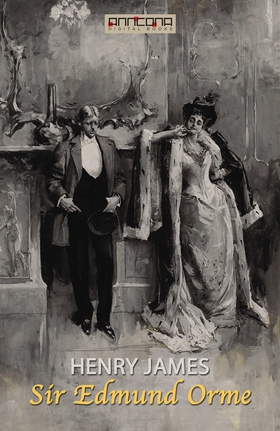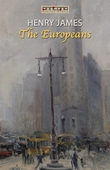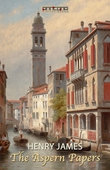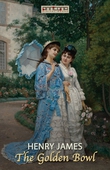
Lägg till önskelistan
Sir Edmund Orme e-bok
Pris
19 kr
Sir Edmund Orme is a short novel by Henry James, first published and included in the collection The Lesson of the Master, published in 1892.
Henry James wrote a number of ghost stories, The Turn of the Screw being the most famous. Did he believe in ghosts himself, as did many of his contemporaries? It's generally possible to find earthly interpretations, Freudian and other, for his ghosts. Sir Edmund Orme, though, is unquestionably a real ghost -- except of course that James's unnamed narrat...
E-Bok
19 kr
Pris
Ljudbok
49 kr
Pris
Förlag
Anncona Media
Utgiven
28 Juli 2016
Genrer
Noveller, Skönlitteratur
Språk
English
Format
epub
Kopieringsskydd
Vattenmärkt
ISBN
9789176058565
Sir Edmund Orme is a short novel by Henry James, first published and included in the collection The Lesson of the Master, published in 1892.
Henry James wrote a number of ghost stories, The Turn of the Screw being the most famous. Did he believe in ghosts himself, as did many of his contemporaries? It's generally possible to find earthly interpretations, Freudian and other, for his ghosts. Sir Edmund Orme, though, is unquestionably a real ghost -- except of course that James's unnamed narrator tells the story in the voice of yet a third man, and the narrator himself passes no judgments on the factual nature of what he is reporting (there's a resemblance here to The Turn of the Screw).
The story has to do with two love affairs in two generations, and Sir Edmund, real or imagined, plays a role in each. In the end, then, it's still up to the reader to decide on the nature of the ghost, whether he's real or imagined.
Henry James, OM (Order of Merit) (1843-1916) was an American-born writer, regarded as one of the key figures of 19th-century literary realism.
He is best known for a number of novels showing Americans encountering Europe and Europeans. His method of writing from a character's point of view allowed him to explore issues related to consciousness and perception, and his style in later works has been compared to impressionist painting. His imaginative use of point of view, interior monologue and unreliable narrators brought a new depth to narrative fiction.
Henry James was nominated for the Nobel Prize in Literature in 1911, 1912, and 1916.












